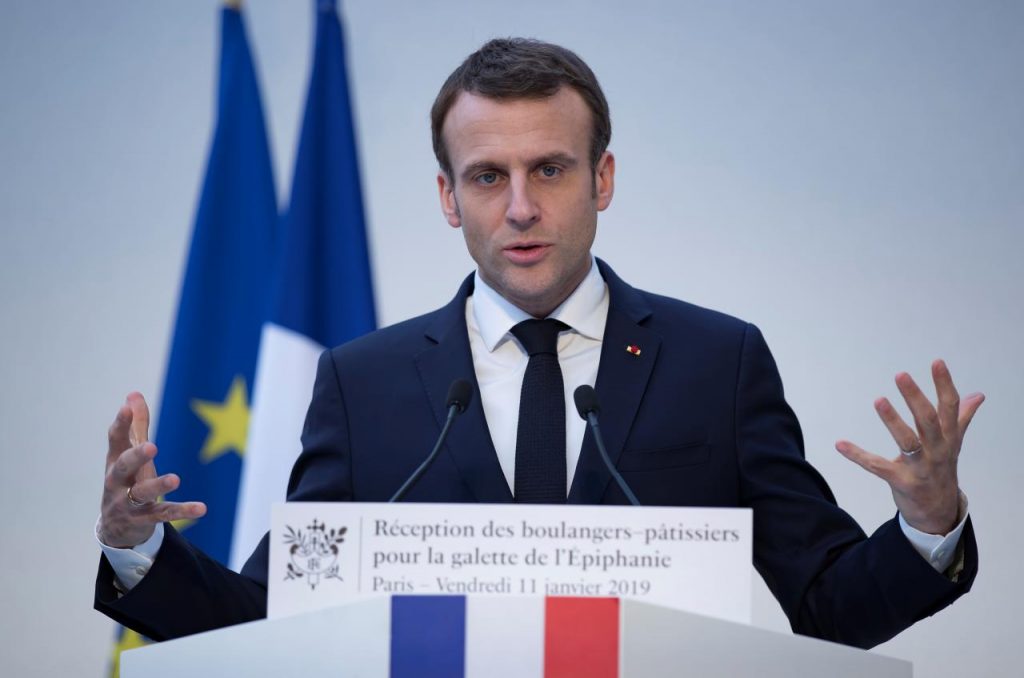Kyiv: French President Emmanuel Macron said Thursday that 26 of Ukraine’s allies have pledged to send troops as a “reassurance force” once fighting ends in the war with Russia.
Macron spoke after a meeting in Paris of the so-called “coalition of the willing”, a group of 35 countries who support Ukraine. He said 26 of the countries had committed to deploying troops in Ukraine — or to maintaining a presence on land, at sea, or in the air — to help guarantee the country’s security the day after a ceasefire or peace is achieved.
Earlier Thursday, Macron and other European leaders met with Ukrainian President Volodymyr Zelenskyy and the US envoy for peace talks, Steve Witkoff, to discuss ways of ensuring long-term military support and continued American backing for Ukraine once the conflict ends. Zelenskyy also held a closed-door meeting with Witkoff.
Macron said at a news conference alongside Zelenskyy that the reassurance force “does not have the will or the objective of waging war against Russia,” but will aim “to prevent any new major aggression and to involve the 26 states very clearly in the lasting security of Ukraine.”
Macron, Zelenskyy say US backs plan
Though details of any US participation in the security guarantees remain unclear, both Macron and Zelenskyy said Washington had expressed willingness to be part of the plan, and the Ukrainian president said he was grateful about that. “As for in what format, I am not yet ready to tell you in detail,” Zelenskyy added.
“The planning work will be finalised with the United States,” Macron said.
Macron and British Prime Minister Keir Starmer, who lead the “coalition of the willing,” previously have insisted that any European “reassurance” force in Ukraine needs the backing of the United States.
The European leaders — some of whom joined the meeting virtually — said Russian President Vladimir Putin must now work toward ending the fighting, and the German government suggested European sanctions on Russia would increase if Moscow drags its feet. The European leaders also spoke by phone with US President Donald Trump after their meeting.
Starmer’s office said the British prime minister “emphasised that the group had an unbreakable pledge to Ukraine, with President Trump’s backing, and it was clear they now needed to go even further to apply pressure on Putin to secure a cessation of hostilities”.
Trump phone call
Finnish President Alexander Stubb told Finnish media that, in the phone conversation with European leaders, Trump emphasised the need to put economic pressure on Russia, and said Europe must stop buying Russian oil and gas that he said was funding the war.
Trump stressed that Russia received €1.1 billion in fuel sales from the EU in one year, according to a White House official. Trump also emphasised that European leaders must place economic pressure on China for indirectly funding Russia’s war efforts, according to the official, who was not authorised to comment publicly about the private talks and spoke on the condition of anonymity.
German government spokesman Stefan Kornelius said that German Chancellor Friedrich Merz laid out three “areas of action,” including working toward a summit that would include Zelenskyy, and “a ceasefire must be agreed there.”
“If the Russian side continues to play for time, Europe will increase the pressure of sanctions to increase the chances of a diplomatic solution,” the statement said.
The Ukrainian president said a meeting with Putin is needed. “This is not a matter of a desire, this is a matter of necessity,” Zelenskyy said. “We support any format, bilateral meeting, trilateral meeting, I believe that Russia does everything to defer it.”
Positive signals
In a policy shift earlier this month, the US sent positive signals over its readiness to support security guarantees for Ukraine that resemble NATO’s collective defence mandate, Zelenskyy previously has said. It is unclear what that support would look like in practice. Ukraine is hoping for continued US intelligence sharing and air support.
NATO Secretary-General Mark Rutte said that a broad coalition of nations is needed to support Ukraine’s defence against Russian aggression, but also to strengthen Europe to deter further military action by Moscow.
Citing European military and intelligence officials who have warned of Russian plans to strike other European countries, Rutte said, “We have to make sure that our deterrence is such that they will never try, knowing that our reaction will be devastating.”
Rutte also called for the world to “not be naive about Russia”.
“We know what Putin tries to do and and the evidence is there in Ukraine as we speak,” he said.
Meanwhile, in Ukraine, Russia fired 112 strike and decoy drones across the country overnight Thursday, according to Ukraine’s Air Force morning report. Air defences intercepted or jammed 84 drones, the statement said.
Russia Thursday announced that it was expelling an Estonian diplomat in a tit-for-tat move after Estonia declared a Russian diplomat persona non grata last month.
AP
